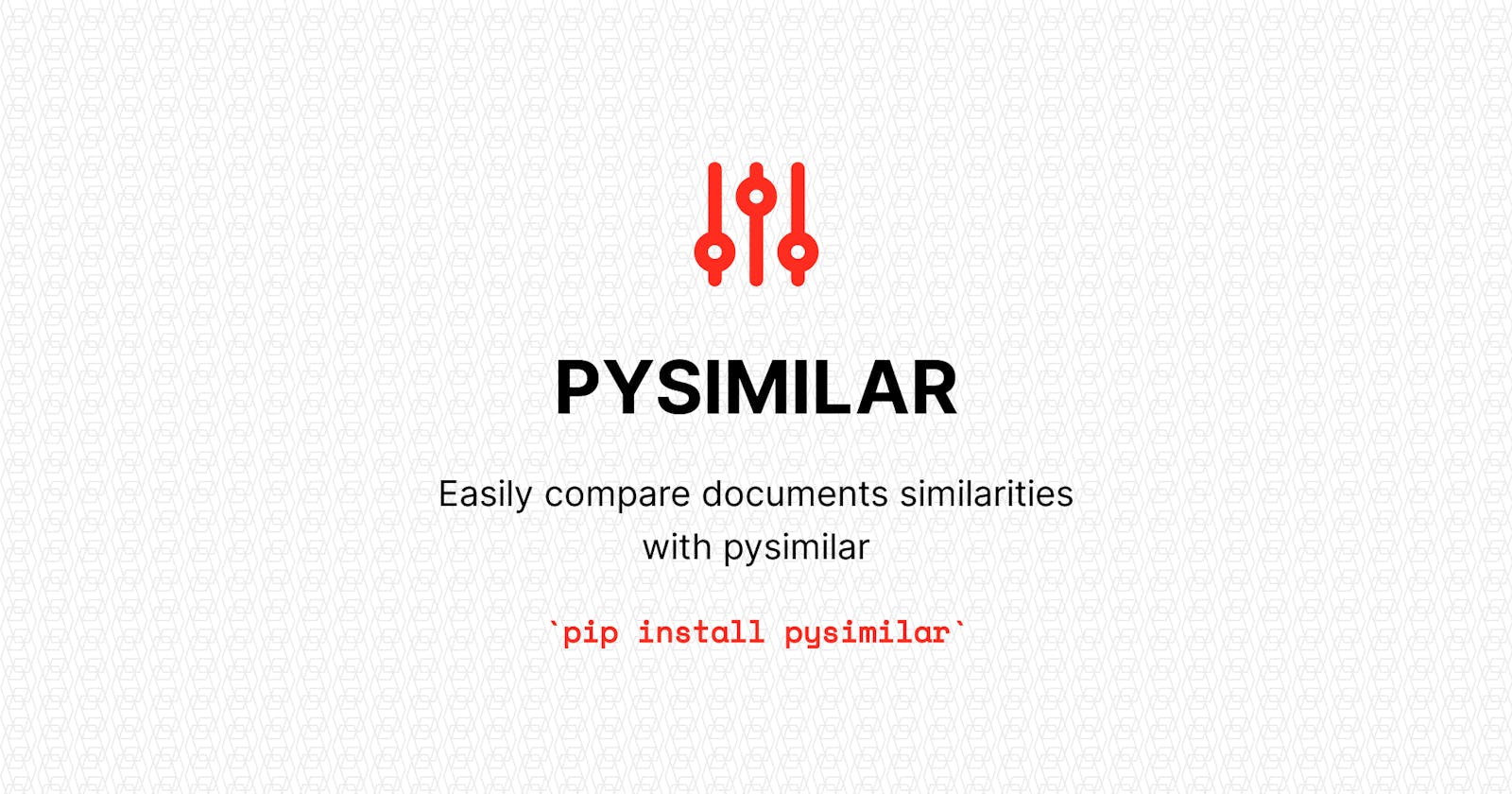Easily detect plagiarism in texts using pysimilar (python)
plagiarism-detection-python
Hi guys
I recently wrote an article titled How to detect plagiarism in text using python where by I shown how you can easily detect the plagiarism between documents as title says manually using cosine similarity.
I republished that article on multiple platform including here on Hashnode and Hackernoon, and its one of my most viewed article plus most starred GitHub repository among articles repositories.
Which gave me a second thought to refactor the code/article to make it more easily and friendly to get started with even for absolutely beginners leading me to build a python library pysimilar which I can say simplify it to the maximum;
Getting started with Pysimilar
To get started with pysimilar for comparing text documents, you just need to install first of which you can either install directly from github or using pip.
Here how to install pysimilar using pip
$ pip install pysimilar
Here how to install directly from github
$ git clone https://github.com/Kalebu/pysimilar
$ cd pysimilar
$ pysimilar -> python setup.py install
With Pysimilar you can either compare text documents as strings or specify the path to the file containing the textual documents.
Comparing strings directly
You can easily compare strings using pysimilar using compare() method just as illustrated below;
>>> from pysimilar import compare
>>> compare('very light indeed', 'how fast is light')
0.17077611319011649
Comparing strings contained files
To compare strings contained in the files, you just need to explicit specify the isfile parameter to True just as illustrated below;
>>> compare('README.md', 'LICENSE', isfile=True)
0.25545580376557886
You can also compare documents with particular extension in a given directory, for instance let's say I want to compare all the documents with .txt in a documents directory here is what I will do;
Directory for documents used by the example below look like this
documents/
├── anomalie.zeta
├── hello.txt
├── hi.txt
└── welcome.txt
Here how to compare files of a particular extension
>>> import pysimilar
>>> from pprint import pprint
>>> pysimilar.extensions = '.txt'
>>> comparison_result = pysimilar.compare_documents('documents')
>>> [['welcome.txt vs hi.txt', 0.6053485081062917],
['welcome.txt vs hello.txt', 0.0],
['hi.txt vs hello.txt', 0.0]]
You can also sort the comparison score based on their score by changing the ascending parameter, just as shown below;
>>> comparison_result = pysimilar.compare_documents('documents', ascending=True)
>>> pprint(comparison_result)
[['welcome.txt vs hello.txt', 0.0],
['hi.txt vs hello.txt', 0.0],
['welcome.txt vs hi.txt', 0.6053485081062917]]
You can also set pysimilar to include files with multiple extensions
>>> import pysimilar
>>> from pprint import pprint
>>> pysimilar.extensions = ['.txt', '.zeta']
>>> comparison_result = pysimilar.compare_documents('documents', ascending=True)
>>> pprint(comparison_result)
[['welcome.txt vs hello.txt', 0.0],
['hi.txt vs hello.txt', 0.0],
['anomalie.zeta vs hi.txt', 0.4968161174826459],
['welcome.txt vs hi.txt', 0.6292275146695526],
['welcome.txt vs anomalie.zeta', 0.7895651507603823]]
Well that's all for this article, Excited to see what you are going tol build with it
Here a link to Github Repository

